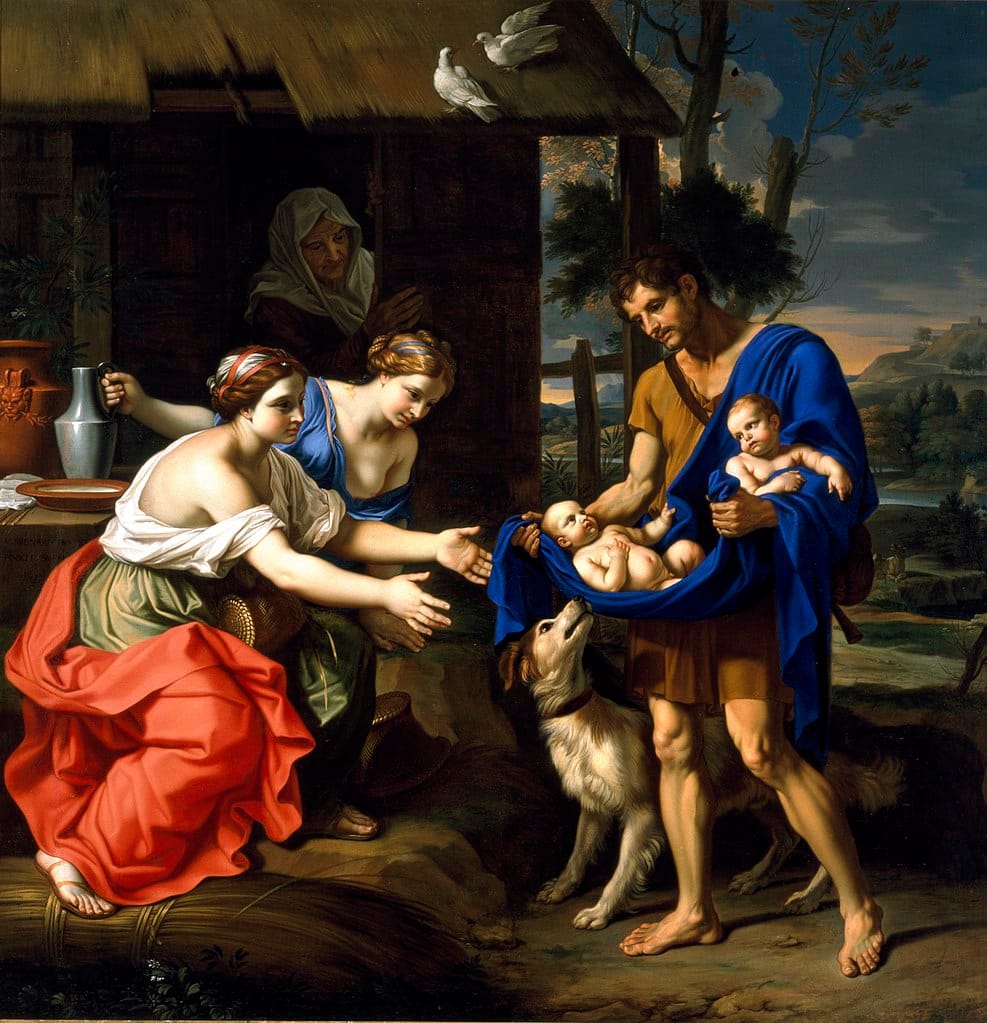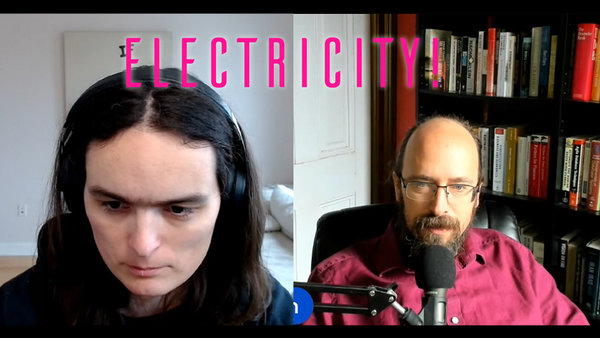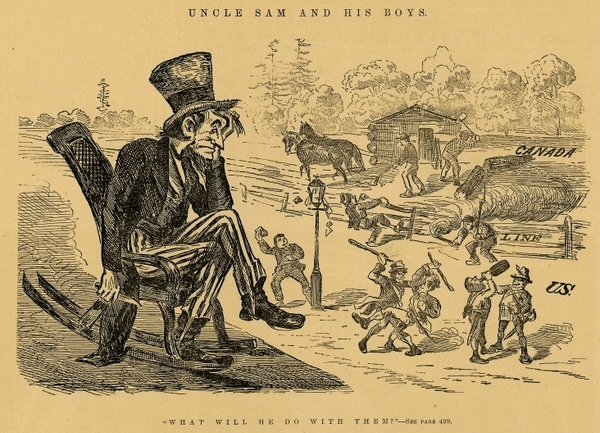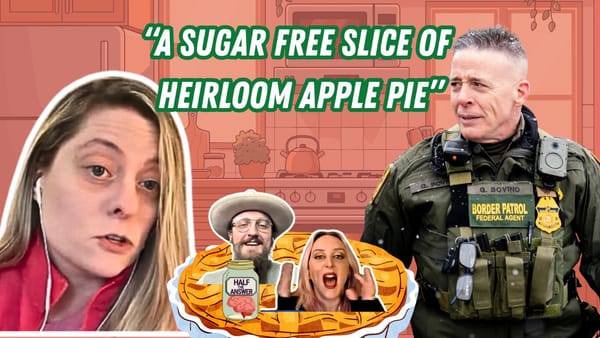Adoption, Belonging, and the Question of Citizenship
Adoptees are proof of the cruelty and carelessness at the heart of Trump’s assault on birthright citizenship.

Am I a citizen? Right now, the answer is pretty simple: yes. I am adopted, though I was born in North Carolina. I assume both of my birth parents were citizens, and know that my adoptive parents are citizens. But my adoption was closed, which, as I’ll explain, means I have severely limited means of accessing information about my biological family or details about my birth. With the Supreme Court ruling against universal injunctions and the Trump administration’s signal that they see it as a green light to pursue their agenda, including further attacks on citizenship rights, the answer to my question now seems somewhat less clear. Many adoptees, both domestic and international, have reason to worry that their positions under this administration are now more precarious than ever before.
Domestic and international adoptees face different considerations, but both have reason to be concerned about their status if the Trump administration continues its assault on the definition and regulation of citizenship. For international adoptees, the law now provides for automatic citizenship. But that’s only been the case since 2000, before which time adoptive parents were expected to complete the naturalization process. Unfortunately, many went unnaturalized. Some estimates place the number of adoptees without citizenship as high as 75,000.
Indeed, there are many horrifying stories of international adoptees discovering they exist in a paperwork black hole due to parental negligence or systemic corruption. Take the case of “A,” an international adoptee from South Korea. Juliana Kim reported on her story this year for NPR. “A” was adopted at three weeks old in the era before the Child Citizen Act of 2000 that granted citizenship to future adoptees as well as those under 18 at the time the law went into effect. As a young adult, a State Department letter set her on a journey that led to her discovering she was not, in fact, a U.S. Citizen.
For domestic adoptees, a key problem is the prevalence of so-called closed adoption. While there is a spectrum, many closed adoptions entail a total forfeiture of parental rights by the biological parents as well as significant legal barriers to future contact and reunification. This includes sealing the adoptee’s original birth certificate and issuing an amended birth certificate bearing the names of the adoptive parents. Today, adoptees in only fifteen states have an unconditional right of access to their original birth certificates. In all other states, this right is heavily reduced or even outright restricted. This means a court order, consent of the birth parents, or even written proof of the death of the birth parents could be required for an adoptee to have any hope of obtaining their original birth certificate.
It’s important to understand that closed adoptions, while still practiced, were once the primary standard in American domestic adoption. I say this both to stress the lack of malice on the part of adoptive parents and to emphasize that the prevalence of closed adoptions as an industry standard means many domestic adoptees face these restrictions. A sea-change began in the 1980s and 1990s, and open adoptions—allowing for a continuing relationship between the birth parents, child, and adoptive parents—now make up the overwhelming majority of private domestic adoptions.
Before now, birthright citizenship precluded the need for citizenship questions about domestic adoptees. Their adoptive parents would of course have had no reason to naturalize them. If this fundamental constitutional principle is threatened, what happens to domestic adoptees who can neither provide definitive proof they were born to American citizens nor easily gain access to the people and documentation that could provide certainty?
At the heart of all of this is the same dynamic that makes all children vulnerable: a total dependence on the personal, legal, and bureaucratic decisions taken by the adults in a person’s life.
It’s adults, from the agencies to the adoptive parents, who were historically responsible for ensuring intentional adoptees were properly naturalized. It’s adults, including judges, who determine if a domestic adoptee has the legal right to access their original birth certificate or to obtain other vital information about their heritage. And for many adoptees, there is no absolute certainty that these various documents exist or, if they do, that they will be able to obtain them. That imposes a level of uncertainty on the adoptee that is deeply problematic under normal conditions.
In a hypothetical where the legal foundation of American citizenship is dismantled either nationally or in a patchwork nature across the country, ambiguity and uncertainty become the key tools of state menace.
What we ought to remember is that, under a regime where being able to provide irrefutable proof of legal status on demand is the basis for one’s security, anyone can find themselves at the mercy of immigration enforcement. How many people can provide, right this second, all of the necessary paperwork to assert their citizenship with total ease and confidence?
The truth is daunting. As Jack Herrera recently wrote for New York Magazine:
If Immigration and Customs Enforcement arrests you for an immigration-related offense, and you tell the agency you are a citizen, it might not release you. Citizenship isn’t something that you wear on your body. Maybe you pull an ID, a passport, or even a birth certificate, but agents frequently assume these are fake. In that case, you will be taken to a detention center run by a private prison company. You can tell the guards there that you’re a citizen, but they’ll likely respond with some version of ‘tell it to the judge.’ Your immigration-court appearance could be weeks, or even months, away. You will wait behind bars. There’s no right to counsel in immigration court—if you can’t afford a lawyer, you’ll have to represent yourself. When you finally see the inside of a courtroom, it could be what ICE calls a ‘mass removal’ hearing with dozens of other defendants. You won’t have a chance to talk to a judge.
Now consider all of this with the added complication of not having access to your original birth records or, more terrifyingly, finding out your adoptive parents never finalized your naturalization.
The uncertainty, ambiguity, and sheer omnipresent menace is the central threat of right-wing efforts to rewrite citizenship. At the moment, Trump’s executive order threatens to block children born to undocumented immigrants from citizenship moving forward. There are children who are soon to be born in this country whose citizenship is no longer guaranteed. But I don’t believe we should assume this administration won’t try and enact retroactive policies at some point, potentially sending many more millions into limbo.
Blood, soil, and belonging
Belonging, what it means, who gets to belong, and how are questions at the heart of the concept of citizenship. These ideas are also inextricable from the practice of adoption.
The ethical considerations of adoption, which are thorny and considerable, are beyond the scope of this essay. The reality is that there are millions of adoptees, both domestic and international, in the United States who could be forced to wrestle with the legal dilemmas presented here.
What adoption affords us in this context is a keyhole into the whole idea of belonging and what it means to be integrated into a larger social unit, from the family all the way up to the nation-state.
Child-rearing is, at its best, a fundamentally collaborative and communal undertaking. Healthy families, healthy communities pool energy and resources to provide guidance, opportunity, and assistance to the young people around them. And so, too, do healthy polities. They seek to provide quality education, ensure emotional and physical stability, and protect children from harm and predation. But this also raises critical questions about who falls within the boundaries of family, community, and nation and who does not.
So what makes a family? What makes a community? What makes a nation? The MAGA answer is nakedly obvious. When Stephen Miller declared at Madison Square Garden that “America is for Americans only,” I think there was little doubt that his definition of American is heavily circumscribed. MAGA hardliners like to talk about “heritage Americans,” people of white, Northern European stock who can trace their lineage back to early 19th century and even pre-Revolutionary America. They also stress the ideological purity of good citizens.
Exclusion, along ideological and identitarian lines, is the MAGA ethos. It’s evident in the attacks on LGBTQ people. It’s clear in the way MAGA politicians regard the parental rights of liberal Americans as subordinate to those of the loudest and angriest right-wingers. It is glaringly obvious in the cruel ways that Trump’s immigration enforcement has targeted families, terrorized children, and attempted to pit neighbors against each other.
For this administration, a healthy community is one that turns on its own out of fear and prejudice. A family is an opportunity to inflict trauma and leverage emotions—including ICE agents callously watching a six-year-old boy with Leukemia wet himself in custody. A nation is a means of hoarding power and wealth and inflicting, through the circumscription of law, as much pain on their enemies as possible.
Blood is paramount, the right sort and the right amount. But so is politics. I’ve written extensively about the right-wing preoccupation with limiting immigration while raising birth rates among white Americans—but with notable exclusions. These carve-outs are ideological as well as biological. The Daily Caller’s Michael Knowles has called surrogacy an “evil” that should result in life sentences for all involved. In 2022, Marjorie Taylor Greene told Randi Weingarten American Federation of Teachers that, despite having a daughter through marriage, she is “not a mom.” On adoptive parents more broadly, Greene has said this:
The idea that mom and dad together—not fake mom and fake dad—but the biological mom and biological dad, can raise their children together and do what’s right for their children, raising them to be confident in who they are, their identity, their identity is, you know, they’re a child made by God.
My interpretation of Greene’s comments is that the biological question is relevant but secondary to the ideological. What really renders someone a “fake” parent in Greene’s eyes is raising a child outside of her preferred worldview.
All of this is part of a set of anti-family, anti-liberal positions I’ve come to call “America First pro-natalism.” Here—just as in the wider discourse about what defines America—good, desirable families are white, reproductively healthy, and politically aligned with the MAGA movement.
It’s critical to note here that adoption itself has been used as a tool for dismembering families and decimating indigenous groups. Its legacy in this regard is harrowing and well-documented. But it also stands as proof that human relationships run deeper than gene pools. And it reminds us that our nature is far more complicated than biological inheritance. On these points, it defies the ethno-nationalist logic that undergirds MAGA’s exclusionary nativism and exposes arguments about ethnic and cultural assimilation for the rank race science that they are.
Now, setting aside the group questions of family, community, and nation, there remains the issue of the individual. That is to say, the child themselves.
Contingency and the individual
The small-l liberal heart of liberal democracy is the freedom and dignity of the individual. Liberalism holds that our lives, our choices are our own, though modern liberalism also makes accommodations for the social forces and exigencies that can buffet any person.
Adoptees and the children of undocumented immigrants offer examples that highlight the deeply contingent nature of human life. More specifically, they open a window into the chaos that will be unleashed if the Trump administration successfully continued its attempt to rollback citizenship rights.
Like everyone else, we begin our lives wherever we do by chance and without our own consent. In my case, that has meant a loving family, good friends, and caring teachers who offered me their support and nurtured my talents and interests. Often, it does not. In many instances, Adults make choices, and children, sometimes decades later as adults themselves, live the consequences. Immigration and adoption are both such cases. So many of us born in the United States or whose parents made the choice to bring us here have long been among the most fortunate people on the face of this earth.
A liberalism that is alive to the human condition must recognize both that society is made up of individuals, all striving to exercise their agency as much as they can to pursue their ends and live with dignity, and that there is no such thing as an individual outside of society. Its relationships, from the primal and biological ones that bring us into this world to the social forces that help mold us into the people we are, that give shape to the person. In all that churn and contingency, we build a life, we forge families, and we find community.
What this administration is threatening to do, and what the Supreme Court has made a little more possible for them to do, is strip the soul out of the things that bind us together not only as Americans but as people in an uncertain world.
Featured image is The Shepherd Faustulus Bringing Romulus and Remus to His Wife, by Nicolas Mignard




